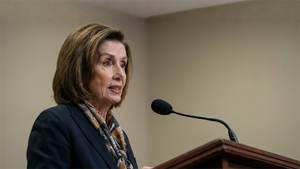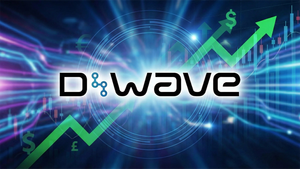Financial News
Bragar Eagel & Squire, P.C. Reminds Investors That Class Action Lawsuits Have Been Filed Against Fate, Sotera, Argo, and National Vision and Encourages Investors to Contact the Firm
NEW YORK, March 01, 2023 (GLOBE NEWSWIRE) -- Bragar Eagel & Squire, P.C., a nationally recognized shareholder rights law firm, reminds investors that class actions have been commenced on behalf of stockholders of Fate Therapeutics, Inc. (NASDAQ: FATE), Sotera Health Co. (NASDAQ: SHC), Argo Blockchain Plc, Inc. (NASDAQ: ARBK), and National Vision Holdings, Inc. (NASDAQ: EYE). Stockholders have until the deadlines below to petition the court to serve as lead plaintiff. Additional information about each case can be found at the link provided.
Fate Therapeutics, Inc. (NASDAQ: FATE)
Class Period: April 2, 2020 - January 5, 2023
Lead Plaintiff Deadline: March 22, 2023
Fate is a clinical-stage biopharmaceutical company that develops programmed cellular immunotherapies to treat cancer and immune disorders.
On April 2, 2020, after the market closed, Fate announced its entry into a global collaboration and option agreement with Janssen Biotech, Inc. (“Janssen”), one of the Janssen Pharmaceutical Companies of Johnson & Johnson, for cell-based cancer immunotherapies, under which Fate received a $50 million upfront payment (the “Janssen Collaboration Agreement”). In addition, Fate was eligible for up to $3 billion in various milestone payments and double-digit royalties on any net sales from the collaboration. On the news, Fate’s stock price jumped 8.8% in trading on April 3, 2020.
Throughout the Class Period, Defendants made materially false and misleading statements regarding the Company’s business, operations, and compliance policies. Specifically, Defendants made false and/or misleading statements and/or failed to disclose that: (i) the Janssen Collaboration Agreement was less sustainable than Fate had represented to investors; (ii) accordingly, certain the clinical programs, milestone payments, and royalty payments associated with the Janssen Collaboration Agreement could not be relied upon as future revenue sources; (iii) as a result, Fate had overstated the impact of the Janssen Collaboration Agreement’s on Fate’s long-term clinical and commercial profitability; and (iv) as a result, the Company’s public statements were materially false and misleading at all relevant times.
On January 5, 2023, after the markets closed, Fate issued a press release announcing that it had terminated the Janssen Collaboration Agreement. Specifically, the Company disclosed that it was “not able to align with Janssen on their proposal for continuation of our collaboration, where two product candidates targeting high-value, clinically-validated hematology antigens were set to enter clinical development in 2023[.]” As a result of the termination, Fate revealed that all licenses and other rights granted pursuant to the Janssen Collaboration Agreement would terminate, that it would reduce its headcount to about 220 employees in Q1 2023, and that it would discontinue several of its natural cell killer programs in various cancers, including FT516 and FT538 NK cell programs in acute myeloid leukemia, FT516 and FT596 NK cell programs in B-cell lymphoma, and FT538 and FT536 NK cell programs in solid tumors.
On this news, Fate’s stock price fell $6.76 per share, or 61.45%, to close at $4.24 per share on January 6, 2023.
As a result of Defendants’ wrongful acts and omissions, and the precipitous decline in the market value of the Company’s securities, Plaintiff and other Class members have suffered significant losses and damages.
For more information on the FATE class action go to: https://bespc.com/cases/FATE
Sotera Health Co. (NASDAQ: SHC)
Class Period: Pursuant to the November 20, 2020 IPO; Pursuant to the March 18, 2021 SPO; and/or November 20, 2020 - September 19, 2022
Lead Plaintiff Deadline: March 27, 2023
Sotera provides sterilization and lab testing and advisory services to the medical device and pharmaceutical industries. The Company operates through three businesses: Sterigenics, Nordion, and Nelson Labs. Through its Sterigenics brand, which accounts for the majority of Sotera’s annual revenues, Sotera provides outsourced terminal sterilization services for the medical device and pharmaceutical markets. Terminal sterilization is the process of sterilizing a product in its final packaging.
The Company’s sterilization services rely on three primary technologies, one of which is Ethylene Oxide (“EtO”) processing. EtO processing is a gas sterilization process in which pallets of packaged goods are loaded into a chamber that is then injected with EtO gas to penetrate the packaging. That process emits toxic fumes which must be filtered before being released into the air. Sotera, through its Sterigenics business, conducts or has conducted EtO processing at facilities located in Illinois, California, Georgia, and New Mexico.
In August 2006, the U.S. Environmental Protection Agency (the “EPA”) published an assessment concluding that EtO was significantly more likely to cause cancer than previously known.
In December 2016, the EPA reclassified EtO as a chemical known to be carcinogenic to humans and increased its estimate of EtO’s cancer potency by a multiple of thirty. The EPA has concluded that EtO exposure affects the most vulnerable members of the population, including children, stating that “for a single year of exposure to EtO, the cancer risk is greater for children than for adults . . . because EtO can damage DNA.”
In August 2018, the EPA released the National Air Toxics Assessment (“NATA”)—a screening tool that estimates cancer risks based on emissions data in tens of thousands of census tracts across the United States. The NATA report revealed that people living in communities near Sterigenics’ facilities in Illinois, Georgia, and New Mexico had among the highest cancer rates in the country.
That same month, the Agency for Toxic Substances and Disease Registry of the U.S. Department of Health and Human Services released a report titled “Evaluation of Potential Health Impacts from Ethylene Oxide Emissions.” That report documented the public health impacts of Sterigenics’ emissions on the area surrounding its Illinois facility and revealed the staggering and disproportionate risks of cancer in that area, which included several schools and a daycare.
Beginning in September 2018, shortly after the publication of the EPA’s NATA report, cancer-stricken plaintiffs filed a surge of lawsuits in Illinois against Sotera, alleging that EtO emissions from the Company’s sterilization facility had caused their cancer.
On September 30, 2019, after significant pressure from the public and action taken against the Company by Illinois regulators, Sotera announced the closure of its Illinois facility. Beginning in August 2020, just months before the IPO, cancer-stricken plaintiffs living in proximity to a Sterigenics facility in Georgia filed lawsuits similar to those filed in Illinois.
On November 20, 2020, Sotera conducted its IPO, ultimately selling 53.59 million shares of common stock at $23 per share for gross proceeds of more than $1.2 billion. Months later, on March 18, 2021, the Company conducted the SPO, through which selling shareholders, including affiliates of Sotera’s private equity shareholders, Warburg Pincus LLC (“Warburg Pincus”) and GTCR, LLC (“GTCR”), as well as Sotera’s CEO, sold 25 million shares of Sotera common stock at $27 per share for $675 million in gross proceeds.
In the Offering Materials (defined below) issued in connection with the Offerings, and throughout the Class Period, Sotera made numerous materially false and misleading representations concerning its emissions control systems and exposure to liability from lawsuits for the Company’s failure to limit harmful EtO emissions. The Company represented that it had “a proactive [environmental, health and safety] program and a culture of safety and quality.” In addition, Sotera stated that it employed adequate and effective safeguards to control EtO emissions. Moreover, Sotera and its executives vehemently denied allegations that the Company’s EtO emissions from its sterilization facilities caused cancer and other severe health issues in people living in the communities near those facilities.
These and similar statements made throughout the Class Period were false. In truth, Sotera and its senior executives and controlling shareholders knew, or at a minimum, recklessly disregarded, that for years the Company failed to employ effective emissions control systems to prevent the release of excessive amounts of toxic EtO gas from its sterilization facilities. Those deficiencies exposed people living in the surrounding communities to a significantly increased risk of cancer and subjected Sotera to an increased risk of liability from hundreds of EtO-related lawsuits. As a result of these misrepresentations, shares of Sotera stock traded at artificially inflated prices throughout the Class Period.
Investors began to learn the truth on September 19, 2022, when an Illinois state court jury in the first lawsuit arising from Sotera’s EtO emissions to go to trial, captioned Kamuda v. Sterigenics U.S., LLC, No. 18 L 10475 (Ill. Cir. Ct.) (“Kamuda”), found Sotera liable for the plaintiff’s cancer. Specifically, the jury awarded the plaintiff $363 million in damages, including $38 million in compensatory damages and $325 million in punitive damages. Of great significance for Sotera investors, the jury cited Sotera’s and Sterigenics’ “willful and wanton” misconduct in not preventing toxic EtO emissions, and failing to warn about the severe health hazard posed by the Company’s Illinois facility. As a result of these disclosures, Sotera’s stock price declined by $4.90 per share, or 33.3%, from $14.73 per share on September 16, 2022, to $9.83 per share on September 19, 2022.
On September 19, 2022, after the market closed, news reports revealed that the jury verdict in the Kamuda case was supported by “[e]mails and corporate documents” that showed “the companies knew long ago” about the toxic effects of EtO. Despite that knowledge, Sotera “delayed installing pollution-control equipment and attempted to undermine federal regulations that would require costly improvements at sterilization facilities.”
The next day, on September 20, 2022, analysts at Goldman Sachs downgraded Sotera stock, noting a significantly greater risk to Sotera in future EtO-related litigation due to facts that emerged in the Kamuda case and “possible bands of outcome being so open ended that it creates a material overhang on the stock for the foreseeable future.” As a result of these disclosures, Sotera’s stock price declined by an additional $1.63 per share, or 16.6%, from $9.83 per share on September 19, 2022, to $8.20 per share on September 20, 2022.
Then, on September 21, 2022, analysts at JP Morgan downgraded Sotera stock after finding that “investors are likely to price in this unprecedented ruling as a higher probability of a larger settlement or subsequent payouts of the 700+ remaining individual lawsuits, which [Sotera] could potentially not afford.” As a result of these disclosures, Sotera’s stock price declined by an additional $0.88 per share, or 10.7%, from $8.20 per share on September 20, 2022, to $7.32 per share on September 21, 2022—more than 68% below the IPO price of $23 per share, and nearly 73% below the SPO price of $27 per share.
As a result of Defendants’ wrongful acts and omissions, and the precipitous decline in the market value of the Company’s shares, Plaintiffs and other Class members have suffered significant losses and damages.
For more information on the Sotera class action go to: https://bespc.com/cases/SHC
Argo Blockchain Plc, Inc. (NASDAQ: ARBK)
Class Period: Pursuant to the September 23, 2021 IPO and/or September 23, 2021 - October 10, 2022
Lead Plaintiff Deadline: March 27, 2023
Argo, together with its subsidiaries, purports to engage in the cryptocurrency mining business worldwide, including the mining of Bitcoin or Bitcoin equivalents (together, “BTC”).
Argo maintains a fleet of thousands of BTC mining machines at facilities located in Canada and Dickens County, Texas. The Company’s Texas facility is referred to as its “Helios” facility.
On August 19, 2021, Argo filed a registration statement on Form F-1 with the SEC in connection with the IPO, which, after several amendments, was declared effective by the SEC on September 22, 2021 (the “Registration Statement”).
On September 23, 2021, Argo filed a prospectus on Form 424B4 with the SEC in connection with the IPO, which incorporated and formed part of the Registration Statement (the “Prospectus” and, together with the Registration Statement, the “Offering Documents”).
On or about September 23, 2021, pursuant to the Offering Documents, Argo conducted the IPO, issuing 7.5 million ADSs to the public at the Offering price of $15 per ADS for approximate proceeds of $105 million to the Company before expenses and after applicable underwriting discounts and commissions.
The Offering Documents were negligently prepared and, as a result, contained untrue statements of material fact or omitted to state other facts necessary to make the statements made not misleading and were not prepared in accordance with the rules and regulations governing their preparation. Additionally, throughout the Class Period, Defendants made materially false and misleading statements regarding the Company’s business, operations, and prospects. Specifically, the Offering Documents and Defendants made false and/or misleading statements and/or failed to disclose that: (i) Argo was highly susceptible to and/or suffered from significant capital constraints, electricity and other costs, and network difficulties; (ii) the foregoing issues hampered, inter alia, Argo’s ability to mine BTC, execute its business strategy, meet its obligations, and operate its Helios facility; (iii) as a result, Argo’s business was less sustainable than Defendants had led investors to believe; (iv) accordingly, Argo’s business and financial prospects were overstated; and (v) as a result, the Offering Documents and Defendants’ public statements throughout the Class Period were materially false and/or misleading and failed to state information required to be stated therein.
On June 7, 2022, Argo issued a press release providing an operational update, in which it disclosed that it had mined approximately 25% fewer BTC in May 2022 compared to April 2022 because of, inter alia, increased network difficulty, higher electricity prices, and the curtailment of mining operations at its Helios facility.
On this news, Argo’s ADS price fell $0.28 per ADS, or 4.4%, to close at $6.09 per ADS on June 7, 2022.
On October 7, 2022, Argo issued a press release “announc[ing] several strategic actions that are intended to bring in additional capital to the business and ensure that the Company has the working capital necessary to execute its current strategy and meet its obligations over the next twelve months.” Argo stated that in addition to measures being undertaken to reduce costs and preserve capital, the Company had signed a non-binding letter of intent with an affiliate of New York Digital Investment Group (“NYDIG”) to amend an existing equipment financing agreement, plans to sell 3,400 mining machines for cash proceeds of £6 million, and intends to raise approximately £24 million via a proposed subscription with a strategic investor.
On this news, Argo’s ADS price fell $0.97 per ADS, or 23.26%, to close at $3.20 per ADS on October 7, 2022.
Then, on October 11, 2022, Argo issued a press release providing an operational update, in which it announced that “[d]uring the month of September, Argo mined 215 [BTC] compared to 235 BTC in August 2022” which was “primarily due to a 12% increase in average network difficulty during September.” Argo also stated that it “is continuing to curtail operations at its Helios facility in Dickens County, Texas during periods of high electricity prices” and was replacing the Company’s Chief Technology Officer (“CTO”).
On this news, Argo’s ADS price fell $0.27 per ADS, or 10.98%, to close at $2.19 per ADS on October 11, 2022.
As of the time this Complaint was filed, Argo’s ADSs continue to trade below the $15 per ADS Offering price, damaging investors.
As a result of Defendants’ wrongful acts and omissions, and the precipitous decline in the market value of the Company’s securities, Plaintiff and other Class members have suffered significant losses and damages.
For more information on the Argo class action go to: https://bespc.com/cases/ARBK
National Vision Holdings, Inc. (NASDAQ: EYE)
Class Period: May 13, 2021 - May 9, 2022
Lead Plaintiff Deadline: March 28, 2023
According to the Complaint, the Company made false and misleading statements to the market. National Vision faced considerable wage and hiring pressure due to competition and other factors including the COVID-19 pandemic. The Company launched a multi-million-dollar retention plan to avoid mass resignations in 2021. This retention plan was likely to negatively impact the Company’s financial performance in the fourth quarter to a greater extent than it informed investors. Despite the retention plan, the Company faced a startling shortage of optometrists in 2022. Based on these facts, the Company’s public statements were false and materially misleading throughout the class period. When the market learned the truth about National Vision, investors suffered damages.
For more information on the National Vision class action go to: https://bespc.com/cases/EYE
About Bragar Eagel & Squire, P.C.:
Bragar Eagel & Squire, P.C. is a nationally recognized law firm with offices in New York, California, and South Carolina. The firm represents individual and institutional investors in commercial, securities, derivative, and other complex litigation in state and federal courts across the country. For more information about the firm, please visit www.bespc.com. Attorney advertising. Prior results do not guarantee similar outcomes.
Contact Information:
Bragar Eagel & Squire, P.C.
Brandon Walker, Esq.
Melissa Fortunato, Esq.
(212) 355-4648
investigations@bespc.com
www.bespc.com

More News
View More




Recent Quotes
View MoreQuotes delayed at least 20 minutes.
By accessing this page, you agree to the Privacy Policy and Terms Of Service.




